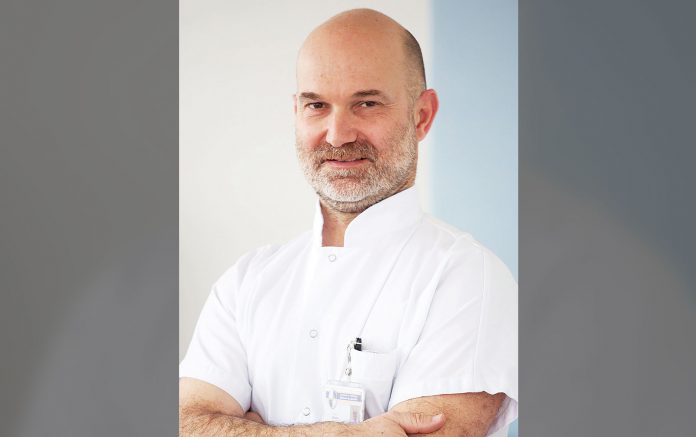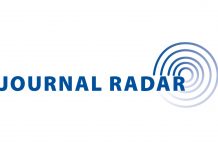By Fabrice Barlesi, MD, PhD
Posted: December 2017
Since the advent of adjuvant platinumbased chemotherapy as the standard of care, little progress has been achieved in significantly improving the cure rate of patients with resected early-stage lung cancer. However, attempts to biologically drive the postoperative management of these patients to provide more precise, more effective treatment has led to several trials. Some of these protocols have been based on actionable molecular alterations (e.g., EGFR),1-3 some based on targeting DNA repair pathway alterations (e.g., ERCC1, BRCA1),4,5 and some based on both.1 Unfortunately, while this type of strategy has proven technically feasible, none of these trials have provided patients with a substantial survival benefit.
Many explanations have been proposed to explain this lack of success, but there are 2 that come to the forefront. First, the available data regarding the biology of early-stage non-small cell lung cancer (NSCLC) is lacking because these patients, until very recently, have been less frequently molecularly profiled6 compared to patients with advancedstage NSCLC, who are routinely molecularly tested and who benefit from targeted therapies. Second, the assumption that therapies that work in advanced NSCLC can be exported to the early-stage setting with similar outcome benefits is suspect since early-stage NSCLC is very likely a biologically different cancer.
The sequencing of more than 8,000 early-stage lung cancer cases will undoubtedly provide the scientific community with innovative pathways to be explored and new targets to be addressed.
Therefore, initiatives like the ALCHEMIST master protocol, whose amended design is featured in this issue of IASLC Lung Cancer News, are important; they offer our patients, both current and future, a better opportunity for cure. The sequencing of more than 8,000 earlystage lung cancer cases will undoubtedly provide the scientific community with innovative pathways to be explored and new targets to be addressed.
The linked therapeutic protocols will also provide us with key information. Does an EGFR- or ALK-targeted therapy offer more chance of cure, or are these agents merely delaying time of recurrence? How do we biologically explain the detrimental effect seen in wild-type patients,7 and what are the risks for patients with an actionable molecular alteration who are already cured by surgery with or without adjuvant chemotherapy?
Besides actionable molecular alterations, and particularly in their absence, can immune checkpoint inhibitors change the outcome? On one hand, the immune system probably has a role in explaining why, at the same pathological postoperative stage, some patients are cured and others are not.
On the other hand, the likelihood of activating the immune system may be lower in those with occult, micrometastatic disease and earlier stage, compared to those with macroscopic disease and advanced metastatic stage. If so, how can we increase the chance of activating the immune system in those with early-stage NSCLC? Are monotherapies with PD-1/PD-L1 inhibitors sufficient? Are combinations needed? While chemotherapy is globally equally effective, how will immunotherapy perform in the neoadjuvant setting where tumor is still in place, and analyzable,8 compared to the adjuvant setting where the tumor has been removed and only micrometastatic disease is potentially present? How long should we keep patients on treatment? How long can we keep patients on treatment with acceptable toxicity and adequate compliance? As preclinical data are missing, all these questions have to be empirically answered, and 1 year of adjuvant immunotherapy has been chosen “arbitrarily” in currently recruiting trials.
Hopefully, future research results and IASLC World Conferences on Lung Cancer will provide us with the answers to these pressing questions! ✦
References
1. Wislez M, Barlesi F, Besse B, et al. Customized adjuvant phase II trial in patients with non-smallcell lung cancer: IFCT-0801 TASTE. J Clin Oncol. 2014;32:1256-1261.
2. Wu Y-L, Zhong W, Wang Q, et al. Gefitinib (G) versus vinorelbine+cisplatin (VP) as adjuvant treatment in stage II-IIIA (N1-N2) non-smallcell lung cancer (NSCLC) with EGFR-activating mutation (ADJUVANT): A randomized, phase III trial (CTONG 1104). J Clin. Oncol. 2017; 35:15_suppl (8500-8500).
3. Kelly K, Altorki NK, Eberhardt WEE, et al. Adjuvant erlotinib versus placebo in patients with stage IB-IIIA non-small-cell lung cancer (RADIANT): A randomized, double-blind, phase III trial. J Clin Oncol. 2015;33(34):4007-4014.
4. Novello S, Grohé C, Michael Geissler M, et al. Preliminary results of the International Tailored Chemotherapy Adjuvant Trial: The ITACA trial. J Thorac Oncol. 2015; 10 (suppl 2): ORAL04.03
5. Massuti B, Cobo M, Rodriguez-Paniagua M, et al. SCAT phase III trial: Adjuvant CT based on BRCA-1 levels in NSCLC N+ resected patients. Final survival results. A Spanish Lung Cancer Group trial. J Thorac Oncol. 2017; 12:11 (supple 2; abstract PL.0204)
6. Jamal-Hanjani M, Wilson GA, McGranahan N, et al. Tracking the evolution of non-small-cell lung cancer. N Engl J Med. 2017; 376(22):2109-2121.
7. Goss GD, O’Callaghan C, Lorimer I,et al. Gefitinib versus placebo in completely resected non-smallcell lung cancer: results of the NCIC CTG BR19 study. J Clin Oncol. 2013; 31:3320-3326.
8. Chaft JE, Forde PM, Smith KN, et al. Neoadjuvant nivolumab in early-stage, resectable non-small cell lung cancers. J Clin Oncol. 2017;35(15 suppl, abstr 8508)
Related Articles
National Cancer Institute Adds Latest Clinical Trial to the ALCHEMIST Platform
Q&A with Jamie E. Chaft, MD, Regarding the ALCHEMIST Platform
Erlotinib, Crizotinib, Nivolumab: Big Three in ALCHEMIST Platform
Discussing ALCHEMIST with Shakun Malik, MD











